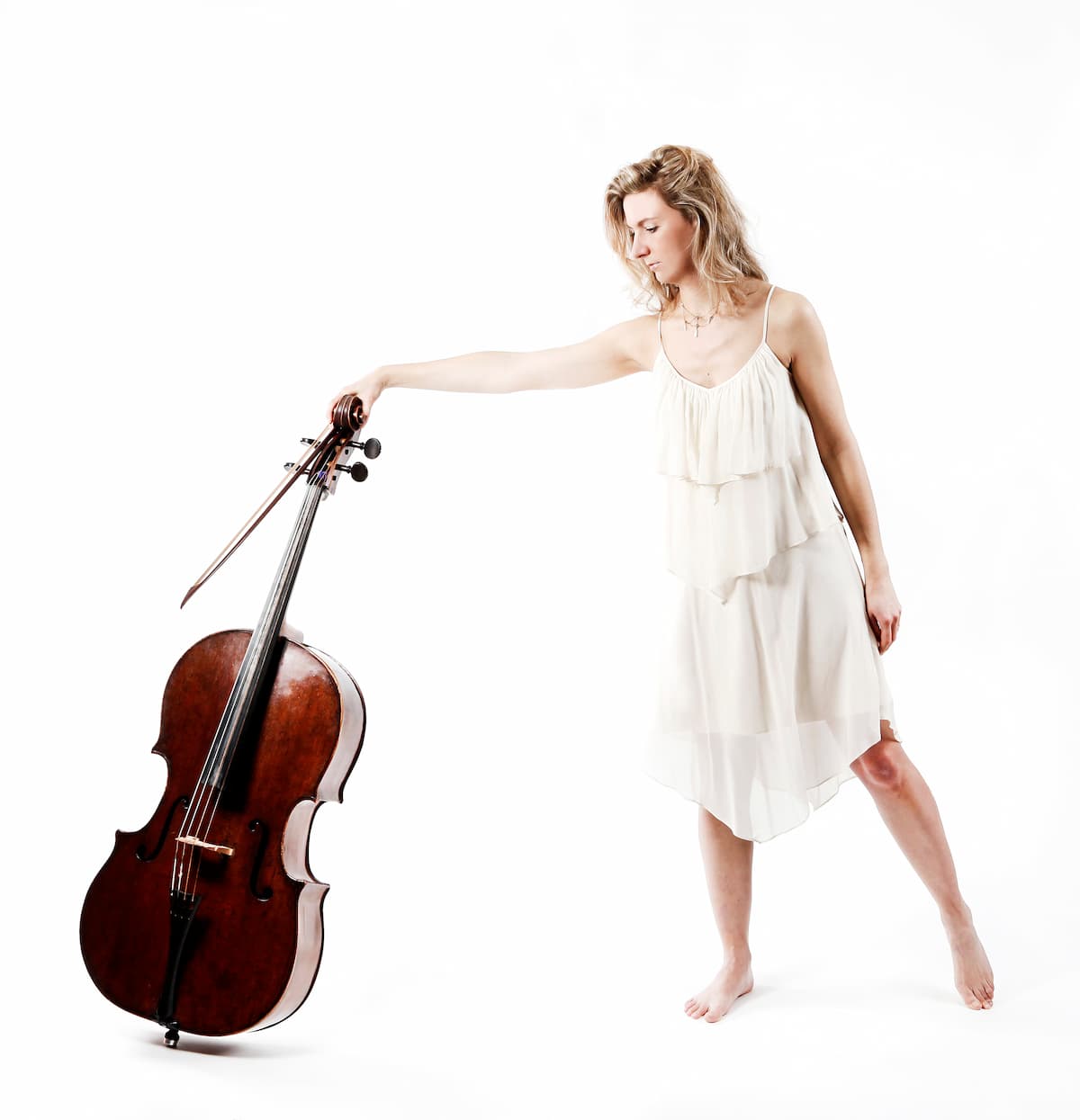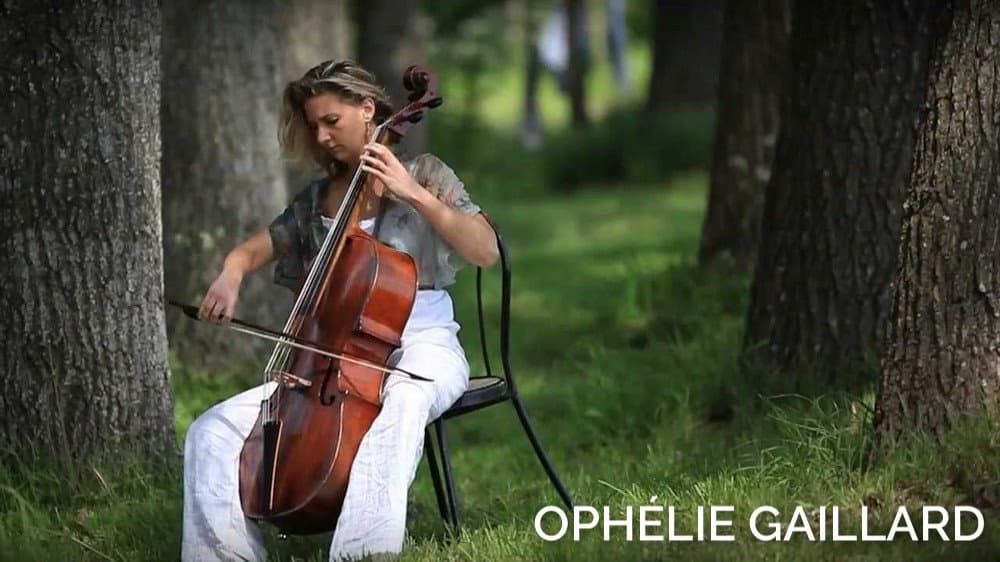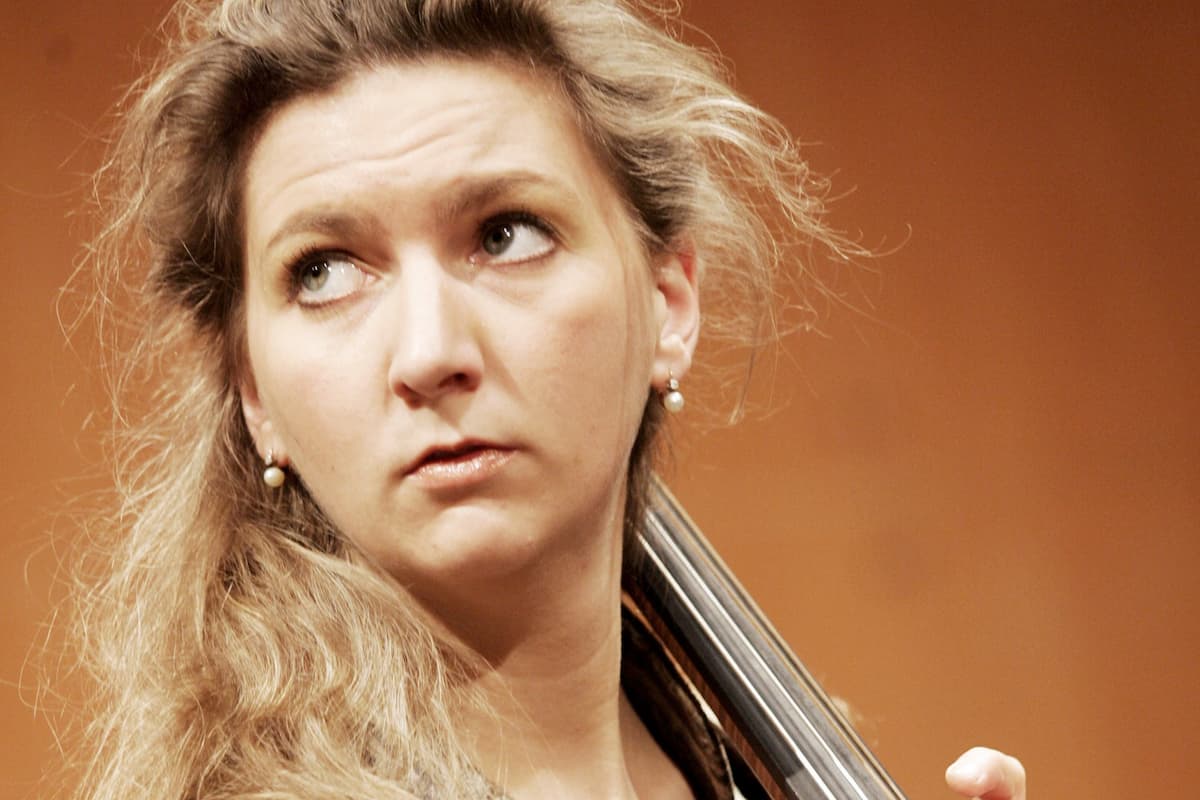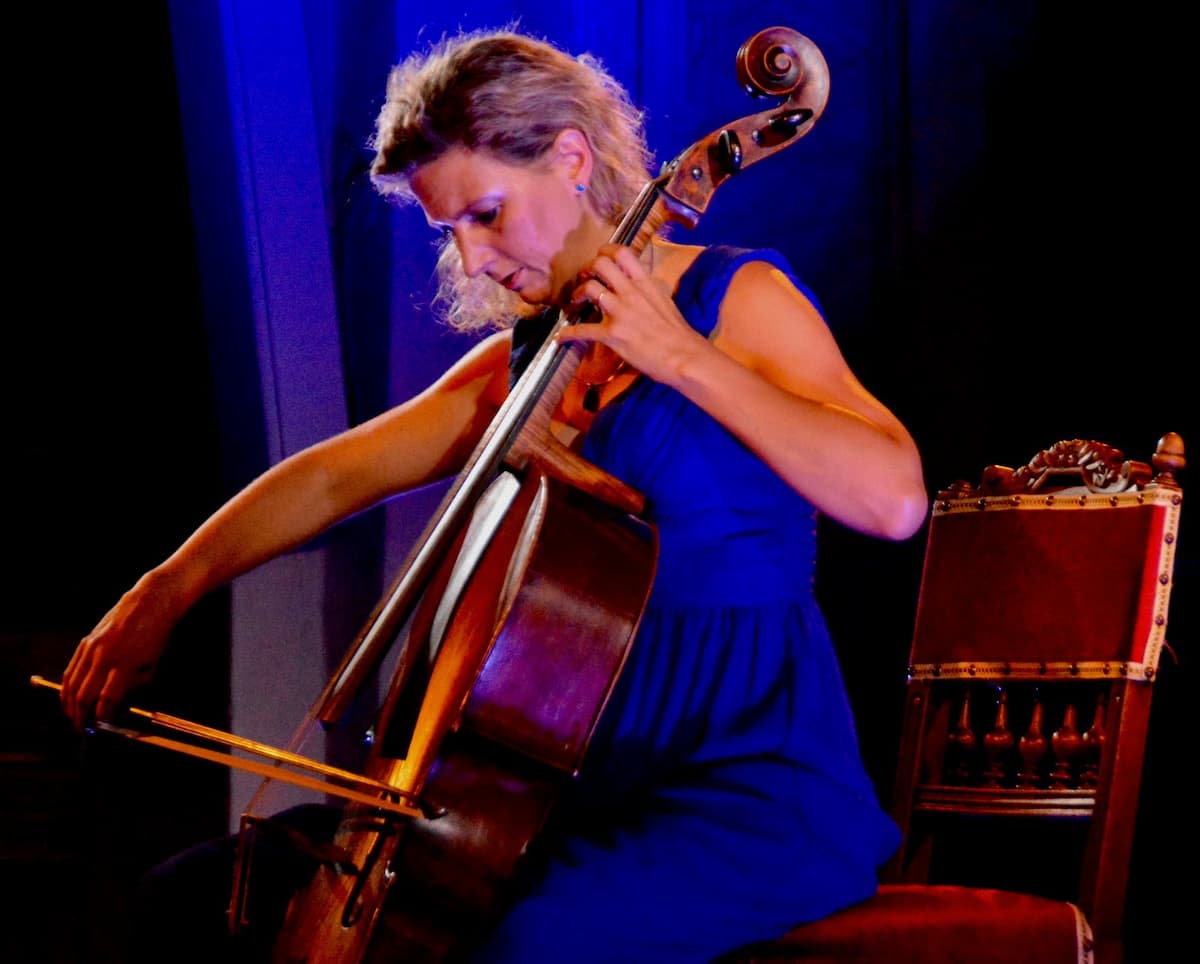Cellist Ophélie Gaillard is known for her “impeccable intonation, technical fluency, and absolutely luscious tone.” Driven by insatiable curiosity, Gailliard completely disregards all artificial boundaries and champions a solo cello repertoire ranging from Bach to contemporary music. Her knowledge and passion for music are truly infectious as she finds intense expression and emotion in every musical voyage.
Ophélie Gaillard Plays Bach’s Cello Suite No. 6 “Gavotte”
Bach Suites

Ophélie Gaillard
Born on 13 June 1974 in Paris, Gaillard grew up in a musical household. Her father is a psychoanalyst and her mother a German teacher, but both have a strong love for music. In fact, attending concerts has always been a treasured family activity. Gaillard remembers falling in love with the cello when she was about 3 and a half years old. As she recalls, “my parents took me to listen to the “Suites” by Bach and it was love at first sight.”
Listening to the magnificent sounds of the cello “was a real physical shock, but I had to wait until I was 7 before being allowed to take cello lessons—it seemed such a long wait! Gaillard entered high school with a special emphasis on music. She recalls, “I followed a normal schooling with, as a bonus, ten hours of collective music per week, two hours of personal practice per day and a good hour and a half daily journey to go from home to school. Result: I was accustomed very early on to doing ten thousand things at the same time!”
Frédéric Chopin: Cello Sonata in G Minor, Op. 65 (Ophélie Gaillard, cello; Edna Stern, piano)
Multiple Talents

Gaillard entered the Conservatoire de Paris and obtained three first prizes in music. In the class of Maurice Bourgue she received a first in chamber music, and also one in cello in the class of Philippe Muller. She also added a first prize in baroque cello in the class of Christophe Coin. Concurrently, she received a Certificate of Aptitude in cello pedagogy and a degree in musicology from the Sorbonne.
She immediately became active as a chamber music player, founding the “Ensemble Amarillis” with her sister, recorder player and oboist Héloïse Gaillard, and with harpsichordist Violaine Cochard. Gaillard won several prizes in major international competitions, including most notably, the third prize of the J. S. Bach International Cello Competition in Leipzig in 1998.
Gaillard/Vizi Play Schumann’s Phantasiestücke Op. 73
Revelation

Gaillard made her recording debut on the Ambroisie label with an album entirely devoted to the works of Benjamin Britten, and she was named “Revelation: Solo Instrumentalist of the Year” at the French Classical Music Awards in 2003 and hasn’t looked back. She performed with Baroque groups led by Christophe Rousset, Emmanuelle Haïm, and John Eliot Gardiner, and in 2005, she created the “Pulcinella Ensemble,” with which Gaillard remains associated.
Gaillard is not locked into Baroque repertoires but has recently ventured to explore music from Brazil, Argentina, and Cuba. In essence she is going back to the roots of cello music located in dance. “We play popular music,” she explains, and “I am particularly interested in timbres and sounds that come from different cultural traditions.”
Luigi Boccherini: Cello Concerto in D Major, G. 479 (Pulcinella Orchestra; Ophélie Gaillard, cello/cond.)
Eclectic Traditions

From a musicological view, Gaillard has always been fascinated by Latin dances such as the fandango and flamenco. And as a cellist, she just loves the rhythmic elements of these dances. “To play popular music,” she explained in an interview, “involves many challenges, the main one is the articulation, the phrasing and the rhythm. We spent hours working because otherwise, the pieces will acquire a horrible foreign accent.”
While Gaillard enjoys taking musical journeys to faraway places, she still wakes up to Bach most days. She occasionally takes out her cello before even having a shower or breakfast. Playing the cello is a way to bring her back to the centre of her life. “When I don’t have a train or plane to catch, I play for two to three hours, alternating scales, Bach pieces and breathing exercises. It’s like a spiritual practice that allows me to both focus and dream.”
For more of the best in classical music, sign up for our E-Newsletter
